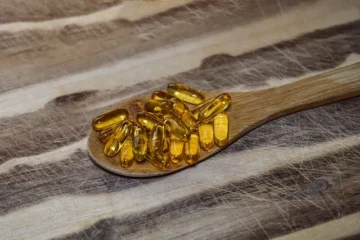The Dad’s Beginner’s Guide To Muscle Building Supplements

As a dad starting to explore fitness or bodybuilding, you might have visited a supplement store and noticed the wide array of supplements available. It can be overwhelming and confusing. We’ve put together this guide to help you understand what these supplements are and how they work as it pertains to muscle building.
Ashwagandha

Being a Dad 40 plus our testosterone, memory and sex drive can be lower than it was in than when we were in our 20’s. Muscle loss can be common. Not to mention our stress levels can be higher compared to when we were in our 20’s due to having kids, family duties, work duties, financial responsibilities, health concerns, etc. Ashwagandha has been known to help in all those areas. It comes in both pill/tablet and powder formats.
There is some evidence to suggest that ashwagandha may also have benefits for muscle building and athletic performance. Studies have found that ashwagandha supplementation may increase muscle strength and mass, improve muscle recovery, and enhance overall athletic performance.
One study published in the Journal of the International Society of Sports Nutrition found that ashwagandha supplementation for 8 weeks resulted in significant improvements in muscle strength and size compared to a placebo group. Another study published in the Journal of Ayurveda and Integrative Medicine found that ashwagandha supplementation improved cardiorespiratory endurance in healthy athletes.
It is known for its ability to help the body cope with stress by reducing cortisol levels, which is why it is classified as an adaptogen. It may also have anti-inflammatory, antioxidant, and immune-boosting effects, as well as potential benefits for brain function, sleep, and sexual health.
BCAA’s
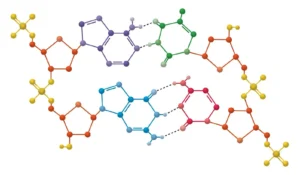
BCAA’s are also known as Branch Chain Amino Acids. They’re three Essential Amino Acids that help support protein synthesis and muscle growth, natural processes that your body uses to build new tissue.
Amino Acids are proteins and there are 20 different Amino Acids that make up the thousands of proteins in the human body. There are Essential Amino Acids and Non-essential Amino Acids. 9 of the 20 Amino Acids are considered essential and out of those 9 there are 3 which are Branch Chain Amino Acids or “BCAA’s”. They are Leucine, Isoleucine, and Valine.
BCAAs can also help you recover faster from workouts, so if you exercise regularly or train intensely, they could be beneficial for you. A BCAA supplement will often contain other ingredients too – some may include creatine or glutamine for example – but generally speaking it’s a good idea to look out for a product that contains only BCAAs when buying one on its own.
BCAA’s are essential amino acids that your body cannot produce on its own. They must then be consumed through diet or supplementation. These amino acids play many roles in the body but most notably they help to promote muscle growth and reduce muscle catabolism (muscle breakdown). This makes them ideal as a supplement when trying to increase muscle mass and/or strength during training programs such as weight lifting or bodybuilding.
Creatine

Creatine is a popular supplement that has been shown to improve athletic performance, particularly in activities that require short bursts of intense energy, such as weightlifting and sprinting. However, it is important to note that there is limited research on the use of creatine specifically in dads.
That being said, creatine supplementation may be beneficial for dads who are looking to improve their fitness and overall health. Here are a few potential benefits of creatine for dads:
- Increased muscle mass: Creatine has been shown to increase muscle mass and strength, which can help dads maintain their physical abilities as they age.
- Improved cognitive function: Some research suggests that creatine may also improve cognitive function, including memory and executive function.
- Increased energy: Creatine supplementation may help dads feel more energized and less fatigued, which can be particularly beneficial for those who are busy with work and family responsibilities.
- Improved overall health: Creatine has also been linked to a number of other health benefits, such as reduced inflammation and improved heart health.
It is important to note that creatine supplementation is not without risks, and individuals should always consult with a healthcare professional before beginning any new supplement regimen. Additionally, it is important to choose a high-quality creatine supplement from a reputable source, and to follow dosage instructions carefully.
Fish Oil
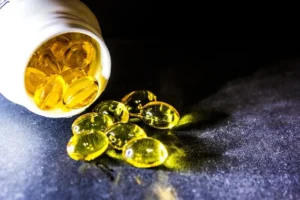
Fish oil is a popular dietary supplement that contains omega-3 fatty acids, which have been shown to have numerous health benefits. In particular, fish oil may be beneficial for dads in a number of ways.
It may help to support heart health. Omega-3 fatty acids have been shown to help reduce triglycerides, lower blood pressure, and reduce the risk of heart disease. It may be beneficial for brain function. Omega-3 fatty acids are important components of brain cell membranes and have been shown to support cognitive function and memory. Also it may be helpful for reducing inflammation in the body, which is important for overall health and well-being.
Here are a few ways that fish oil may be beneficial for muscle building:
- Reducing inflammation: Fish oil contains omega-3 fatty acids, which have anti-inflammatory properties. Inflammation can hinder muscle recovery and growth, so reducing inflammation may help improve muscle building.
- Enhancing muscle protein synthesis: Omega-3 fatty acids have also been shown to enhance muscle protein synthesis, which is the process by which the body builds new muscle tissue.
- Improving joint health: Fish oil may help improve joint health, which can be beneficial for weightlifting and other forms of exercise that put stress on the joints.
- Boosting testosterone levels: Some studies have found that fish oil supplementation may increase testosterone levels in men, which could potentially improve muscle building
Green Tea
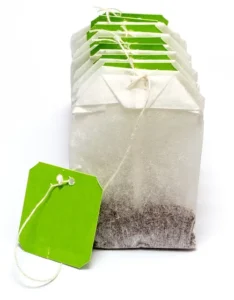
Green tea can potentially aid in muscle building in several ways. Here are a few of the potential benefits:
- Increased fat burning: Green tea contains catechins, which are antioxidants that may help increase the body’s ability to burn fat for fuel. By increasing fat burning, green tea may help improve body composition by reducing body fat and increasing lean muscle mass.
- Improved insulin sensitivity: Insulin is a hormone that regulates blood sugar levels and plays a critical role in muscle growth. Green tea has been shown to improve insulin sensitivity, which means the body is better able to use insulin to shuttle nutrients, like glucose and amino acids, into muscle cells for growth and repair.
- Reduced inflammation: Green tea is rich in polyphenols, which are antioxidants that may help reduce inflammation in the body. Inflammation can interfere with muscle recovery and growth, so by reducing inflammation, green tea may help support muscle building.
- Increased endurance: Green tea contains caffeine, which is a stimulant that can improve endurance during exercise. By improving endurance, green tea may help you push harder during workouts, which can lead to greater muscle building adaptations.
HMB -Hydroxymethylbutyrate
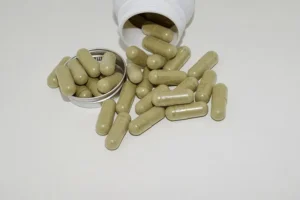
HMB, or beta-hydroxy beta-methylbutyrate, is a supplement that is commonly used to help build muscle and improve physical performance. It is particularly popular among athletes and bodybuilders, but it can also be used by men over the age of 40 who are looking to improve their fitness levels.
Studies have shown that HMB supplementation may help to improve muscle protein synthesis and reduce muscle breakdown, which can lead to greater gains in muscle mass and strength. It may also help to improve endurance and reduce muscle fatigue during exercise.
Glutamine

Glutamine is an amino acid that is produced naturally by the body and also found in many foods, particularly in protein-rich foods such as meat, fish, and dairy products. It is considered a non-essential amino acid because the body can produce it on its own, but it may become essential under certain conditions, such as during illness or intense physical exercise.
Glutamine plays several important roles in the body, including supporting immune system function, promoting muscle growth and repair, and aiding in the maintenance of healthy digestion. It also serves as a precursor for the synthesis of other important molecules in the body, such as glucose and nucleotides.
As for its benefits for dads, glutamine may help support muscle recovery and growth after exercise, which can be beneficial for dads who are trying to stay active and maintain their fitness levels. Additionally, glutamine may also help support gut health and immune function, which can be particularly important for busy dads who may be under a lot of stress and exposed to various environmental stressors.
Mass Gainers

Mass gainers are supplements designed to help individuals gain muscle mass and weight. However, before considering using any supplement, it’s essential to consult with a healthcare professional to ensure it’s safe for you.
Assuming you have consulted with your doctor and they have cleared you for using mass gainers, here are some recommendations:
- Optimum Nutrition Serious Mass: This supplement is popular among individuals looking to gain weight and muscle mass. It contains a blend of carbohydrates, protein, and essential vitamins and minerals.
- BSN True Mass: This mass gainer is designed to support muscle growth and recovery. It contains a blend of protein, carbohydrates, and healthy fats.
- MuscleTech Mass Tech: This supplement contains a combination of whey protein, creatine, and essential amino acids to support muscle growth.
- Dymatize Super Mass Gainer: This mass gainer is formulated with a high calorie and protein content to support muscle growth and recovery.
Remember, mass gainers are not a substitute for a healthy diet and regular exercise. They are meant to supplement your diet and training regimen, and should only be used as directed by a healthcare professional.
Protein Powders
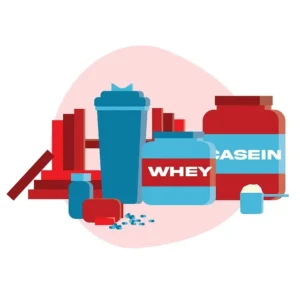
Protein powder can be a convenient and effective way for dads to supplement their diet and support their fitness goals. When choosing a protein powder, there are a few things to consider, such as the protein source, flavor, and additional ingredients.
- Protein source: Look for a protein powder that contains a high-quality source of protein, such as whey, casein, or plant-based proteins like soy, pea, or hemp. Whey protein is the most popular choice due to its high bioavailability and quick absorption by the body.
- Flavor: Choose a flavor that you enjoy, as this will make it easier to stick to your supplement routine. Common flavors include chocolate, vanilla, and strawberry, but there are many other options available.
- Additional ingredients: Some protein powders contain additional ingredients, such as vitamins, minerals, or digestive enzymes. Consider your individual needs and preferences when choosing a protein powder with additional ingredients.
When selecting a protein powder for dads, it’s also important to pay attention to the nutritional information and serving size. Aim for a protein powder that provides at least 20 grams of protein per serving, with minimal added sugars and carbohydrates.
There are several types of protein powders available, each with its unique characteristics and benefits. Some of the most common types of protein powders include:
- Whey Protein: This is one of the most popular types of protein powders, as it is derived from milk and contains all nine essential amino acids. It is easily digested and absorbed by the body and is a good source of branched-chain amino acids (BCAAs), which can help with muscle recovery and growth.
There are three main types of whey protein, which are classified based on their level of processing and composition:
Whey Protein Concentrate (WPC): This is the least processed form of whey protein, with a protein content typically ranging from 30-80%. It contains some lactose, fat, and carbohydrates in addition to protein.
Whey Protein Isolate (WPI): This is a more highly processed form of whey protein, with a protein content of at least 90%. It has been filtered to remove most of the lactose, fat, and carbohydrates, making it a more pure form of protein.
Whey Protein Hydrolysate (WPH): This is the most highly processed form of whey protein, which has been partially hydrolyzed or broken down into smaller peptides for faster absorption. It is often used in medical or sports nutrition applications, where rapid absorption is desirable. - Casein Protein: Like whey protein, casein is also derived from milk. It makes up about 80% of the total protein content in cow’s milk and is often used in food production and sports supplements. However, it is digested and absorbed much slower than whey protein, making it a better option for sustained muscle building and recovery.
- Soy Protein: Soy protein is derived from soybeans and is a popular choice for vegetarians and vegans. It is a complete protein, containing all nine essential amino acids, and may offer additional health benefits such as improving cholesterol levels.
- Pea Protein: Pea protein is another popular choice for vegetarians and vegans, as it is derived from peas and is also a complete protein. It is easily digestible and has been shown to support muscle growth and recovery.
- Rice Protein: Rice protein is derived from brown rice and is also a complete protein. It is hypoallergenic and easily digestible, making it a good option for those with food allergies or digestive issues.
- Hemp Protein: Hemp protein is derived from the seeds of the hemp plant and is a good source of omega-3 fatty acids and fiber. It is also easily digestible and may have anti-inflammatory properties.
- Collagen Protein: Collagen protein is derived from animal sources, such as bones and skin, and is a good source of the amino acids glycine and proline. It may offer additional benefits for skin health and joint function.
Vitamin D
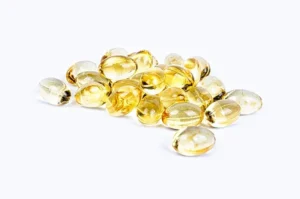
Research suggests that vitamin D may have an anabolic effect on muscle tissue, meaning it promotes muscle growth and repair. Studies have shown that individuals with higher vitamin D levels have greater muscle mass and strength compared to those with lower levels. Additionally, vitamin D supplementation may improve muscle strength and reduce the risk of falls in older adults.
Vitamin D also plays a role in regulating calcium absorption, which is essential for muscle contraction. Without sufficient levels of calcium, muscle contractions can be weakened, leading to muscle weakness and potential injury.
t’s important to note that while vitamin D may play a role in muscle building, it is not a replacement for exercise or a balanced diet. To promote muscle growth and strength, it’s essential to engage in regular resistance training and consume sufficient protein to support muscle recovery and growth.
Conclusion
Supplements can be helpful in supporting a fitness/bodybuilding regimen, it is important to remember that they are not a substitute for a healthy diet and regular exercise. Additionally, not all supplements are safe or effective, so it is important to do your research and consult with a healthcare professional before beginning any supplement regimen.
Disclaimer: Always consult your doctor before trying anything mentioned in this article. All information in this article is intended for educational use only and is not a substitute for professional medical advice, diagnosis, or treatment. Fit Dads Over 40 is not responsible for the accuracy, completeness, suitability, or validity of any information in this article.
